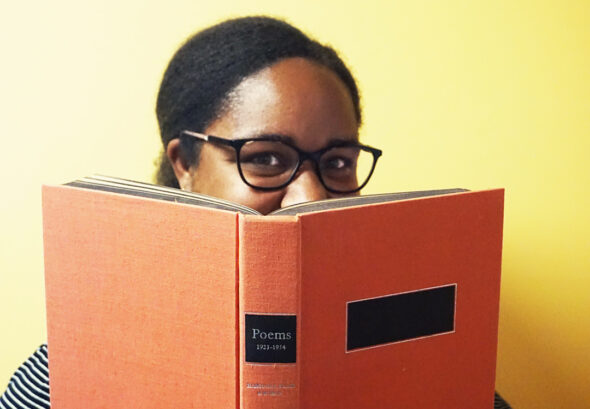
Former ews writer and reporter Jessica Thomas' column, "Unsolicited Opinions," opens up space dedicated to her opinions, books and sometimes other things. (Photo by Reilly Dixon)
Unsolicited Opinions | Sometimes accountability is love
- Published: October 14, 2023
It is very easy to sit in silence. As a former reporter for the Yellow Springs News, I often felt intimidated by the weight of my words, and how those words would affect my relationships with my neighbors and friends. I remember vividly at one Village Council meeting a resident calling out Council for covering for one of its own, the resident asking, “When are you going to help this man?”
At the time, I didn’t feel there was enough evidence to report on the queries I was fielding, and against my better judgment, I chose not to follow up on the videos, letters and phone calls putting a councilperson’s actions into question.
As I sit in silence, thinking about events from the last few weeks in our village, I am reminded of when it came time for me to hold someone I loved dearly accountable for their actions. You see, my whole life, I knew that my father had bipolar disorder, a disorder that made his moods unstable, which led to tense, and sometimes violent situations in his house.
One summer, the house erupted.
The details are still too painful to share, but my sister and I were removed from my dad’s house. While I was on the phone, I could hear my dad screaming at me that I was a bad daughter for “trying to send him to jail.” What he didn’t know is that I had simply called my brother to pick us up. He called my mom. I didn’t talk to the police, but I told my dad that I would not continue to visit him if he didn’t get help. He ended up in an inpatient facility to balance out his medications. He apologized. He did the right thing, but our relationship was never the same after that.
But my father would have gotten help sooner if it weren’t for his enablers. My grandma, the ever-protective mother, told me I was bad for getting my dad in trouble.
“You know he has bipolar, Jessica,” she said. “You need to apologize to him.”
At the time, I was confused. Why should I apologize to him when he was in the wrong. Does his mental illness absolve him from any sin?
Thinking back, I realize that I never needed to apologize for doing the right thing. I also realize that holding my dad accountable made it easier for me to have a relationship with him in the future, a future that would include caretaking for him when dementia led him to an early death. I know now that my grandma, who thought she was caring for my dad, was likely doing more harm than good. What I know now is that love looks different in terrible situations. Sometimes, love is telling your father to face his demons, get treatment, or get out of your life.
I say all of this to meditate on the Oct. 2 Village Council meeting, where a Village Council member met villagers’ concerns about another Council member with the response: “There are other things to worry about.” I can’t help but be reminded of my grandmother, who loved my dad very much, but had a blind spot when it came to his disorder. I commend the Council members who moved forward with what had to be a tough decision, and I hope that this action signals a need for change and accountability — accountability that is meted out fairly and with love.
As a village, we love to talk about the idea of “beloved community;” we love to write letters, to protest and to quote theorists like Cornel West. But when it comes to our own, we need to do better. We need to love and hold each other accountable in a way that makes us all free. Justice and accountability are synonymous; and after all, what did Cornel West tell us to never forget?
“Justice is what love looks like in public.”
*Jessica Thomas is a former News reporter and current columnist. Presently, she is an educator in the Dayton Public School District.











Comments are closed for this article.